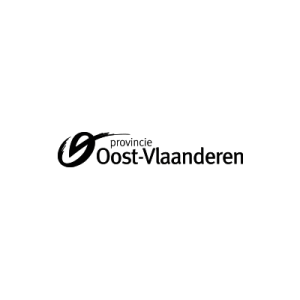By the time most musicians enter their eighth decade, even if they are still playing regularly, it is usually clear that their imperial period of vital creativity is only visible in the rear view mirror. Things could not be more different when it comes to legendary post punk drummer and mainstay of the British underground scene, Charles Hayward (This Heat, Camberwell Now) however. He has never been one to rest on his laurels and has been responsible for more exciting music over the last decade than most people a third of his age manage, as he is an exception to most musical rules. Nowhere is this more audible than on the blistering self-titled debut album by new avant pop group, Abstract Concrete.
Hayward stepped away from playing in groups in 1987 after the collapse of Camberwell Now and the birth of his first child, with the ideas of John Cage – in the future all music will be either solo or collective improvisation because it’s the only way to avoid having anyone tell you what to do – fresh in his mind. He admits now that he stayed away from playing in groups for far longer than he intended. But between 2016 and 2019 he joined with Charles Bullen and a cast of younger musicians to form This Is Not This Heat, which proved a catalytic experience: “I felt the energy that can happen when the audience recognises your songs, but at the same time I was dismayed to be doing old material. I love it and stand by it, but it’s already been done! I just needed to do something new…” While on the final tour of America in 2019 he found himself thinking, “Imagine this energy, this level of commitment from the players but with new material.” This led to the foundation of Abstract Concrete when he returned home to south London.
French violinist Agathe Max (KURO, UKAEA) met Charles at Supersonic Festival in Birmingham (“a very groovy, very cool person”) and not long after joining Abstract Concrete she was set the challenge of learning the viola – something she did in six weeks. Charles has set all of the musicians challenges to take them some way out of their comfort zones. London-based improviser Otto Willberg (Yes, Indeed!, Historically Fucked) was known for the upright bass, before being persuaded to switch to an electric bass guitar. Charles jokes: “Every time I see someone with a double bass on public transport I think, ‘Well, I wouldn’t want to be doing that’, and I’m saying that as a drummer.” Underground Italian rock musician Roberto Sassi (Snorkel, Cardosanto), who joined on guitar, was praised by Charles for his “healthy collection of non-purist pedals and the knowledge of how to undermine his instrument”. Yoni Silver (Hyperion Ensemble, Steve Noble) has swapped bass clarinet for keyboards in the new group. The pair played together with Sharon Gal at Cafe Oto, causing something of an epiphany for Charles: “Yoni played a long breath on the bass clarinet and I played a relatively simple crescendo on the cymbal, and it was a very beautiful moment. I thought, ‘We’re brothers. I want to work with him.’”
The seemingly incongruous band name was originally the title of a song, which has since been changed: “I like it, because it's two opposing ideas; the combination of something theoretical with something that actually exists. You get some people who refer to certain sorts of music as ‘abstract’ and I find that really, really, really, really, really, really weird. Because, what is any music? Songs are abstract, the blues is abstract. Music is a thing that doesn't occur in the real world until musicians make it occur. All music is abstract.”
The journey to this album, for Charles, has been long and complex, but in short, he brought a wealth of fragments with him; of musical concepts, of time changes, of hooks, of melodies and developed them with the group: “I work in a very strange way, which takes into consideration that I have been doing this for my whole life. I've always got fragments of songs just waiting to find a home, waiting for lyrics, waiting for a bridge section to something else. It involves saying to yourself, ‘I'm going to do this until I die.’ I’ve had one of the tunes, ‘The Day The Earth Stood Still’, going round my head for over 25 years.” After this there was only one fixed rule: that he would write the lyrics in response to the compositions they were forging together, a process he describes as “weirdly democratic”. The lyrics are, he explains, “a reaction to the times we’re living in” – often reflections on the political climate of today, the impact of Covid and the changing role of music itself, with the songs being composed and structured in unusual ways to emphasise these concerns.
Structurally this is relatively complex music but that fact is concealed below the surface: “I don’t want you to notice what we’re doing, I just want you to feel it.” Instead he is keen to speak of his love for both pop tunes and folk music: “I started writing three chord songs when I was 11, and when I look at what I’m doing now, a lot of them are still three chord songs. I love pop music; it is industrialised folk music, and that’s what I grew up with.”
There is a strength and fluidity to Charles Hayward’s drumming that could be described as elemental – an aspect that has been clear in his playing for a very long time. Six decades ago, when he was a 12-year-old schoolboy growing up in Camberwell, opposite the Art School where he swears he saw Syd Barrett hanging out one day, he had a foundational if naive experience of improvisation: “We had a beautiful baby grand piano which I loved and I’d been playing it since I was four. One day there was a thunderstorm and my immediate reaction was to play along with it. When it was thundering, I was ‘being’ the lightning by playing at the top end of the keyboard, and when there was lightning, I was ‘being’ the thunder by playing at the bottom end of the keyboard. And that can be a big part of improvisation – the idea that you try to play in a different register to the other players.” But his drumming is even more fundamental to his life, with his first forays into the artform carried out on saucepans with wooden spoons before he was old enough to talk even, and his first kit being empty cardboard boxes struck with toy arrows: a set up he played so insistently, his parents eventually capitulated and bought him a battered second hand kit, the snare drum of which he still uses to this very day.
As well as founding This Heat – whose self-titled debut (1979) and Deceit (1981) albums and Health And Efficiency EP (1980) stand as among the most thrilling and future predicting documents of the period – and startling avant prog group Camberwell Now in 1982, Hayward also played with Roxy Music’s Phil Manzanera in Quiet Sun and Mal Dean’s Amazing Band.
Talking about his time in This Heat – the post punk group with the longest of tails – he says: “You get musicians doing things 20, 30, 40 years after us, and they’re making things that, on the surface, appear to be completely different. But they tell me what an effect This Heat had on them. When we were making this music we were having an effect on ourselves as well. It was almost like we were observing this thing unfolding as opposed to making it happen. We just let ourselves go further and further into it without being frightened of it or assuming that we couldn’t do it. This Heat was anachronistic, out of its own time, because we were predicting what the technology of the future would do while actually not yet having that technology. That is a very useful lesson for the future: repurpose things and think beyond what you've been told technology can do. I would like our music to continue. There are people trying to live for a thousand years, I just think the best you can do is to leave something behind really.”
But for Charles in 2023, his heart lies with Abstract Concrete: “We’re all in agreement, we're in it for the long haul. There’s another album waiting to happen and developmental ideas to open up the music. Abstract Concrete has a life. It’s not a project. It’s a band.”








